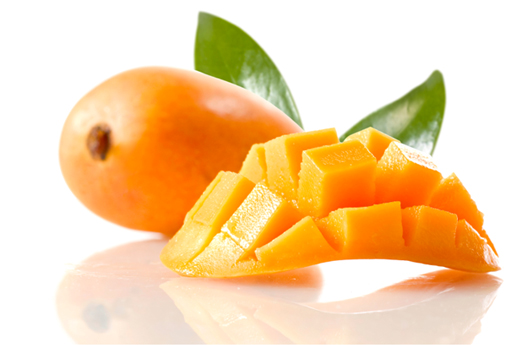
Can I eat “Mango”, if I have diabetes?
Posted on May 10, 2016 with 2 comments
The summer has arrived & so does the hot question of the season. And what is it? “Madam, can a diabetic eat a mango?” It won’t be incorrect if I say that a dietitian’s summer is incomplete without this popular query. Mango is probably one reason that makes summer enjoyable. This delicious fruit is surely a king of fruits due its unique flavour, fragrance, aroma & not to forget its nutritive value. But if you have diabetes, you often are in dilemma whether to eat or not to eat mango. Often this confusion ends in overeating, creating health havoc & turning this sweet friend into a bitter enemy. So let us try to uncover the truth & find out the right answer.
Mango is a powerhouse of nutrients. It is an excellent source of vitamin C, vitamin A & vitamin E. These vitamins act as antioxidants. Antioxidants play a very protective role in preventing heart diseases & cancer. The vitamin C content of mango serves as an immunity booster & its vitamin A reserve prevents eye damage. Mango is also a good source of fiber, pectin which helps to maintain the cholesterol & blood sugar levels. It also provides several important minerals like potassium, zinc, copper, selenium, manganese that are vital to our body. It also contains other bioactive compounds like mangiferin, gallic acids, gallotannins, quercetin, isoquercetin, ellagic acid, and β-glucogallin that have medicinal value. Thus mango is not only tasty but healthy too. So does that mean diabetics should eat mango?
In diabetes, what you eat, how much you eat, when you eat & how you eat are the deciding factors. Your food has a direct effect on your blood sugar levels. Among the nutrients, carbohydrates have the most profound effect on blood sugars. They will raise your blood sugars quickly compared to proteins & fats. The ability of the food to raise the blood sugars will depend on the carbohydrate content of the food. Foods are ranked on the basis of their carbohydrates that cause the blood sugars to rise. This measure is called as ‘Glycemic Index’ (GI). Foods with Glycemic index lower than 55 are considered to be beneficial for maintaining blood sugars. So where does mango lie in this ranking?
The GI value of the mango ranges from 51 to 58 depending upon variety of the mango. This places mango in low to medium range category. This definitely allows you to eat mango but in a controlled portion size. Moderation is the key. If you have mangoes in large amounts, it will increase your carbohydrate content of the meal thereby raising your blood sugar levels. If you have mangoes with large meal like aamras with rotis & rice or have large scoops of mango desserts, again it will raise your blood sugars due to increased carbohydrate content of the meal. To avoid this people with diabetes should watch the portion size of the mango. If your blood sugar levels are high, you should avoid eating mangoes. People with multiple health complications should consult their dietitian before consuming mango. Do not neglect the exercise regimen & your medications if you want to eat mango. Daily exercise will keep your sugars in the target range & that will allow you to eat mango. (So, mango is surely a motivator to keep the sugars in check).
If you know the art of balancing meals, your sugars are under control & if you have no health complication then you can enjoy this summer treat. But discipline in eating is the utmost important. Remember with freedom comes the responsibility. Without responsibility, you can not enjoy the freedom in a true sense. Be responsible towards your health & enjoy the freedom of eating.
Dt. Amita Tambekar,
Registered Dietitian,
Advanced Diabetes Centre, Surat.
Tags: cholesterol, Diabetes, dietitian, exercise, Glycemic Index, Health, Mangoes, medication, Sugar Level, Vitamin A, Vitamin C, Vitamin E
Kimcita Vargas-walker - 8 years ago
Very informative. Thank you for the information.
admin - 8 years ago
We are glad that this information was in a way useful for you.